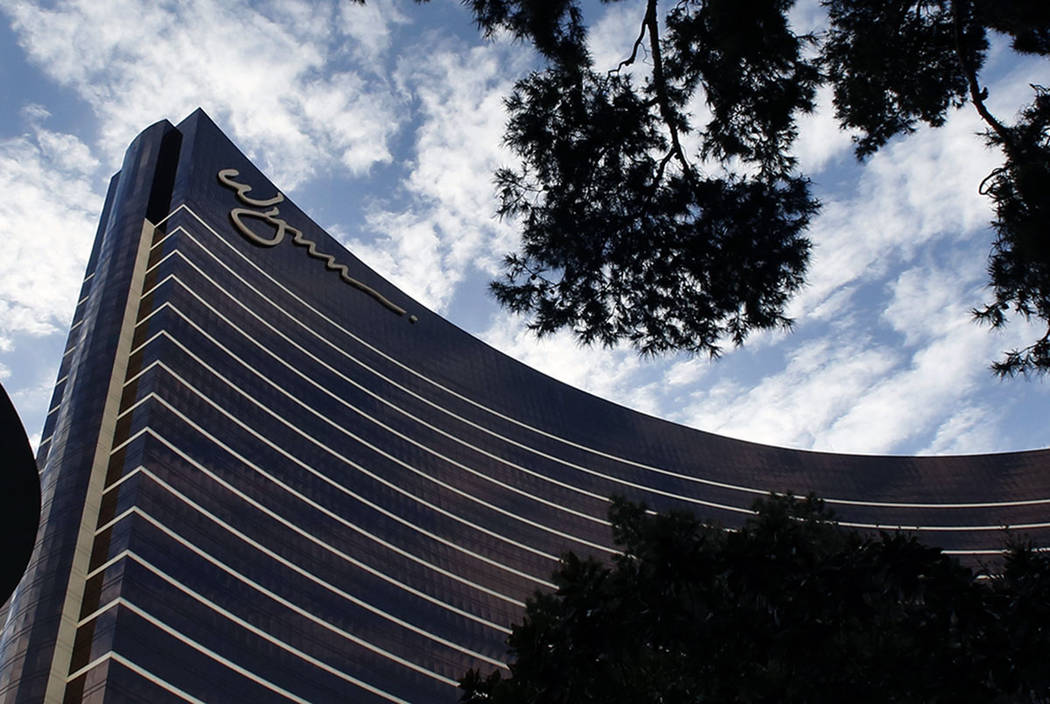Decision won’t end dispute over Wynn Las Vegas tip policy

Last week’s decision by the U.S. Supreme Court to not review Wynn Las Vegas’ long-running tip-sharing case was regarded by many as a victory for the casino’s dealers.
In reality, it’s just another stop on the tortuous road that casino management and employees have traveled since the tip policy was first announced in 2006.
The case now goes back to District Court for hearings before Judge Robert Jones. In the meantime, it’s possible that references to the policy might show up in federal or state legislation or might become a part of a collective bargaining agreement when Wynn dealers negotiate a union contract due to expire in 2020.
Wynn Las Vegas is the only casino to have a policy in place that shares tips collected by dealers with their pit supervisors, who get 15 percent. It was announced in August 2006 and put in place a month later because Wynn’s high-end customers tend to tip more than at other resorts. As a result, dealers were taking home more than their bosses.
Rather than pay pit bosses more, then-CEO Steve Wynn opted to split tokes earned by the front-line employees with their overseers. Moreover, it was the supervisors who counted the nightly tip revenue to split, and the front-liners had no idea whether that count was accurate.
The plan angered dealers so much that they opted to be represented by the Transport Workers Union in May 2007 — despite Steve Wynn pleading with workers to not organize. It took until November 2010 to draft the dealers’ initial contract, and it didn’t address the tip policy because the issue was so contentious.
It’s hard to say how much of the money was given to the supervisors, but Joshua Buck of Thierman Buck LLP, the law firm representing the estimated 800 current and former dealers, said that over the nearly 12-year life of the policy, the total could reach $50 million.
A dealer union representative, Kanie Kastroll, said she believes the policy has cost her at least $150,000.
The best dealers can do is collect lost compensation since May 2011.
Now that the Supreme Court has rejected a hearing, the 9th U.S. Circuit Court’s February 2016 decision remanding the case to Clark County is in play.
Ruben Garcia, co-director of the UNLV Workplace Law Program and a professor specializing in employment law, said after the Supreme Court announcement that legal interpretations of employment law under the Obama administration are different from those under the Trump administration.
One of the issues: whether the pit bosses technically are supervisors. Garcia noted that Congress and the Nevada Legislature could try to clarify terms with new legislation.
“The recent budget reconciliation had a provision in it that said the tips are the property of the employee, so that answers some questions about this,” Garcia said in a telephone interview. “In other words, the tips can’t be shared by supervisors. Remember, the issue that went up to the Nevada Supreme Court (in 2013) was that under state law, the question has been, ‘Are these really supervisors?’
“There’s a whole different determination now under federal law whether these floor managers are actually supervisors under federal law, in which case the new law would prevent that kind of pooling,” he said. “It doesn’t deal with co-employees per se, but as long as you decide they’re supervisors, federal law would make that a violation.”
There’s also a new top executive at Wynn, and dealers have called on CEO Matt Maddox to end the policy and settle the existing lawsuit against the company.
But it doesn’t appear that’s going anywhere.
“We will vigorously defend our position and anticipate a finding in our favor,” a company spokesman said after the Supreme Court announcement.
With all the new court hearings and the possibility of legislative changes in the months ahead, it might take until 2020, when the current 10-year dealer contract ends, to resolve the issue.
That’s the year Wynn projects its new convention center and Paradise Park lagoon amenities to open.
Contact Richard N. Velotta at rvelotta@reviewjournal.com or 702-477-3893. Follow @RickVelotta on Twitter.













